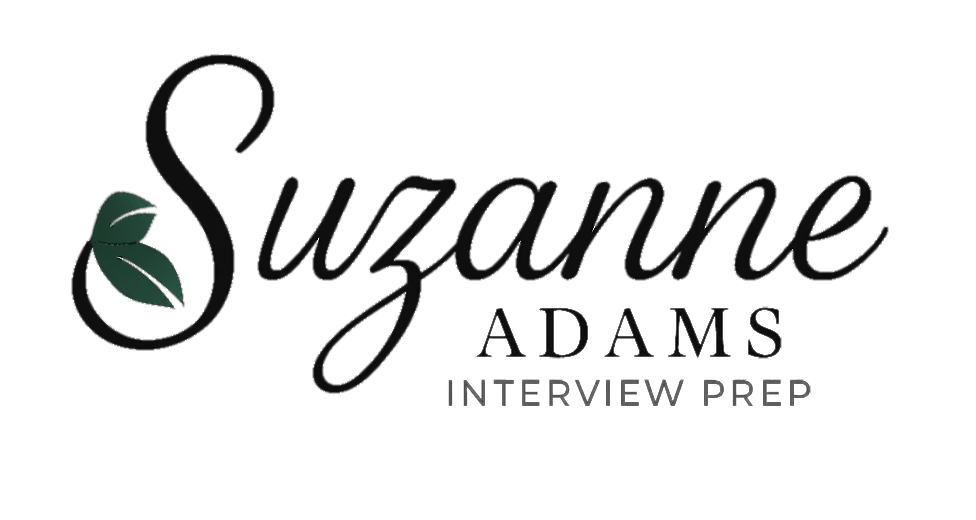Interview Preparation
Overcome challenges with my custom interview preparation approach!
Successful interviews require you to exercise your soft skills. Critical thinking, adaptability, communication & listening skills are just a few abilities you use to respond to different questions and make your value proposition stand out from other candidates.
No matter what job you have in life, your success will be determined 5% by your academic credentials, 15% by your professional experiences, and 80% by your communication skills.
Choose your plan
Together, we will build a plan that will addresses your most pressing challenges.
Coaching starts at $175 and payment is due before each session - thank you
Introductory Interview Prep
Individualized coaching for your next promotion, scholarship or job
1 hr interview preparation session
Review industry-specific interview questions
Indepth Interview Prep
Extended coaching and feedback
1.5 hr interview preparation session
Review industry-specific interview questions
Feedback report on your session
Review and feedback on your resume & cover letter
Follow-up Sessions with Suzanne
Continue refining your interview responses and delivery of your answers
Each session is 1 hr
Feedback report on each session
Industry specific questions come from years of being on panels, research and my contacts across many industries. For example if you are a First Responder (fire services, police, paramedics, corrections officers, customs officers, or ambulance services) your questions are framed according to the skillset the department focuses on.
Mock Interview with Coach
Mock interview with a behavioral coach
1 hour interview with Suzanne
30 min oral feedback on your responses
Written feedback report
Mock Interview with Industry Professional
Mock interview with a behavioral interview coach and an industry professional
1 hour interview with a panel
1 hour oral feedback from the panel on your responses
Written feedback report from the panel
Looking for a different plan?
I am cognizant of the current economic climate and have allotted a few sessions in my schedule at a reduced rate. If my rates present a barrier for you, please reach out and let’s see if we can make something work together.
Why do so many ideal candidates fail interviews?
Do you know the difference between behavioral interview questions and situational interview questions and can you effectively answer either type of question?
Behavioral interview questions work from the premise that how you behaved in the past is an accurate indicator of how you will likely behave and what skills you will likely call upon in response to a similar situation in the future.
I walk my clients through the STAR format of responding to behavioral interview questions. S (situation) + T (task) + A (actions) + R (results)
Some of the mistakes that candidates make in an interview include not understanding the purpose of WHY the question is being asked and not providing a clear and concise "result" to your answer that shows the panel how you think.
Question: Tell me about yourself.
This may seem like an easy win for an interview question—after all, you know all about yourself. However, they are not looking for you to repeat your résumé in your response; they have already read your résumé. Instead, they want to know more about YOU.
It’s important to remember that the reason this question is asked is because employers are really looking to see how you would fit into the specific roles and responsibilities of the position. Over and above the tasks at hand this includes how you effectively get along with people and foster an inclusive and positive work environment.
In the framework of your answer you want to be able to hone your soft skills, your values and how you will be a good fit for the position connecting job requirements to your most valuable experiences.
Question: Tell us a time you had a conflict with a co worker and what was the end result.
The conflict question is the question that most people fail the interview on because they look at the question in a way of making themselves right and the other person wrong, as opposed to their ability to navigate a conflict and bring understanding and perspective to the situation. They’re looking for the candidate that’s not reactive, rather responsive and knows how to approach conflict in a proactive way. The question has nothing to do with what the other person did, and everything to do with your response to it.
Question: What is leadership to you?
The common answer, " I lead by example”.
The panel wants to know "what example," precisely what you do to lead people, how you make people feel comfortable, and how you lead people who are different from you.
In our interview coaching session we will use the STAR format to create clear, results-oriented responses to the questions.
How to answer difficult and challenging questions
-
In our coaching sessions, we will cover how to navigate challenging questions. You will learn WHY they are asking you these questions, and how to provide a strong answer that shows your ability to understand team, inclusiveness, and incorporate your values.
-
We have a lot of good candidates, why should we hire you?
Tell us a time you were less transparent.
What’s more important diversity or inclusivity?
What’s more important, talking or listening?
What type of people do feel challenged to work with?
Name a time you broke a rule?
What would you do if you witnessed misconduct?
What is unique about you?
Would you rather be the strongest in a weak team or the weakest on a strong team?
Describe something that you were asked to do that you did not want to do.
-
So many candidates comment on being the best employee ever, but they do not understand that working in a team is not about being better than other people. It’s about being the best FOR the team, collaborating, and utilizing our diverse strengths.
One of the top attributes all companies are looking for is good communication and listening skills. Communication is easy when things are going well; it is during conflicts or when you have to adapt at a moment's notice that communication can become prickly and less proactive in resolving a problem. This is why they ask you questions about your weaknesses, difficult situations, and conflicts. It’s not about what the other person did; it’s about your reaction to it.








